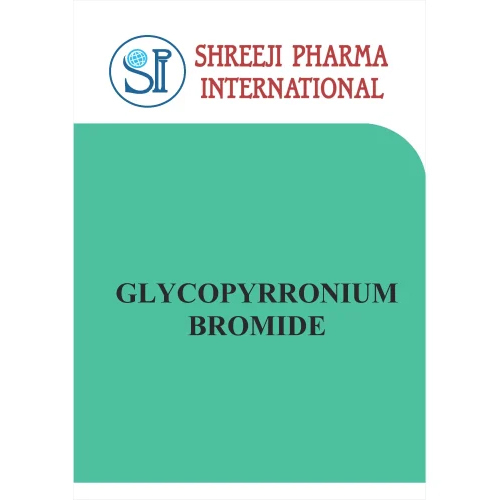Methylprednisolone .
Product Details:
- Storage Room Temperature
- Molecular Formula C22H30O5
- Molecular Weight 374.5 g/mol Grams (g)
- Medicine Name Methylprednisolone
- Type Pharmaceutical Intermediates
- Grade Medicine Grade
- Purity(%) 98%
- Click to View more
Methylprednisolone . Price And Quantity
- 25 Kilograms
- 25.00 - 50.00 INR
Methylprednisolone . Product Specifications
- Medicine Grade
- Liquid
- Room Temperature
- 374.5 g/mol Grams (g)
- Methylprednisolone
- Pharmaceutical Intermediates
- 98%
- C22H30O5
Methylprednisolone . Trade Information
- Cash in Advance (CID), Cash Advance (CA)
- 1000 Kilograms Per Day
- 7 Days
- Australia, Eastern Europe, Western Europe, Middle East, Africa, Central America, South America, Asia, North America
Product Description
Methylprednisolone in the range offered by Shreeji Pharma International is produced at GMP site in Gujarat and supplied locally as well as overseas. Methylprednisolone and Intermediates of Methylprednisolone is exported to Gulf, African, Central American, European and other countries.
Technical Specifications :
- CAS Number: 83-43-2
- Name: Methylprednisolone
- Formula: C22H30O5
- Molecular Weight: 374.52
- Deleted CAS: 570-35-4|121673-01-6
- Synonyms: Pregna-1,4-diene-3,20-dione,11b,17,21-trihydroxy-6a-methyl- (7CI,8CI); Medorol; Medralone; Medrol; Metastab; Metilbetasone; Metrisone; NSC 19987; Prednol; Promacortine; Suprametil; Urbason; Methylphenisolone;
- EINECS: 201-476-4
- Density: 1.28 g/cm3
- Melting Point: 228-237 oC (dec.)
- Boiling Point: 571.8 oC at 760 mmHg
- Flash Point: 313.7 oC
- Appearance: White to off-white crystalline powder
- Risk Codes: 36/37/38
- Safety: 22-36-26 Details
It is a synthetic glucocorticoid that is primarily used to treat inflammation and to suppress immunity. Chronic illnesses are usually treated with low doses while acute flare-ups are treated with high doses simultaneously.
How does it work:
It is used in the treatment of arthritis, blood disorders, severe allergic reactions, cancers, eye disorders, skin, kidney, intestine, and lung diseases, and immune system disorders. The drug lowers your immune system's response to various diseases, meaning you'll have fewer symptoms such as swelling, pain, and allergic reactions. Medications such as this is corticosteroid hormone. Combined with other hormone-related medications, methylprednisolone can also be used for hormone disorders. It can be purchased under the following brand names: Medrol, Medrol Dosepak, DepoMedrol, and SoluMedrol.
Applications Or where it is used :
Metaprednisolone is used to treat conditions such as eye conditions, kidney disease, gastrointestinal disease, arthritis, blood disorders, severe allergic reactions, certain types of cancer, and immune system disorders.
Manufacturing process:
A synthetic steroid hormone, methylprednisolone is derived from hydrocortisone and prednisolone. The drug belongs to the class of synthetic corticosteroids, or glucocorticoids.
How to use:
- Methylprednisolone is usually taken at breakfast once every day. It is important that you take the tablets exactly as prescribed by your doctor
- Methylprednisolone: Usual oral dosing range is from 2 to 60 mg/day, divided every 6 to 24 hours
- Methylprednisolone acetate: Usual dosing range is from 10 to 80 mg intramuscularly (IM) which must be taken every 1 to 2 weeks; as temporary substitute for orally, given in daily IM dose equal to daily oral dose; for prolonged effect, given in weekly IM dose equal to 7 times daily orally dose; not like methylprednisolone sodium succinate, may not be given intravenously (IV)
- Methylprednisolone sodium succinate: Usual dosing range between 10-250 mg IM/IV up that must be taken every 4 hours as needed
- Pediatric
- Methylprednisolone: Usual dosing range is from 0.117 to 1.66 mg/kg/day orally which is divided every 6 to 8 hours
- Methylprednisolone sodium succinate: Usual dosing range is from 0.03 to 0.2 mg/kg intramuscularly (IM) that must be taken every 12 to 24 hours
Side effects:
Common side effects of methylprednisolone are as follows:
- Acne
- Diabetes mellitus
- Emotional instability
- GI perforation
- Glucose intolerance
- Hepatitis
- Hives
- Growth suppression (children)
- Enlarged liver
- Adrenal suppression
- Increased transaminases
- Osteoporosis
- Peptic ulcer
- Pituitary adrenal axis suppression
- Delayed wound healing
- Delirium
- Fast heart rate
- Fluid retention
- Hallucinations
- Headache
- Hypokalemic alkalosis
- Increased white blood cell count
- Insomnia
- Menstrual irregularity or missed menstrual periods
- Muscle tissue disease
- Nerve pain
- Protein catabolism
- Pseudotumor cerebri (on withdrawal)
- Psychosis
- Sodium and water retention
- Seizure
- Skin redness
- Vertigo
- Swelling (edema)
- Ulcerative esophagitis
- Vasculitis
- Weight gain
The following list is not complete; you may experience other side effects as well.
Warnings and precautions while using this product
Warnings
- Methylprednisolone is contained in this medication. In case of an allergy to methylprednisolone or any component of this drug, should not take Medrol, Medrol Dosepak, DepoMedrol, or SoluMedrol.
- Children should not have access to this product. If you overdose, call Poison Control Center or a doctor immediately.
Pregnancy and Lactation
- Methylprednisolone can be taken during pregnancy if the benefits outweigh the risks. Studies conducted on animals show that there is a risk, but no human studies were conducted, or both animal and human studies were not conducted. If corticosteroids such as methylprednisolone are used in pregnancy, there is some suggestion that cleft palate risk may be slightly increased (not fully proven).
- Benzyl alcohol-preserved methylprednisolone should not be administered to neonates, infants, pregnant women, or breast-feeding mothers.
- As methylprednisolone can enter breast milk, use with caution while breastfeeding.

Price:
- 50
- 100
- 200
- 250
- 500
- 1000+







 : nilesh.sheth70
: nilesh.sheth70
